Top 10 Questions To Ask A Commercial Contractor
Home » Top 10 Questions To Ask A Commercial Contractor
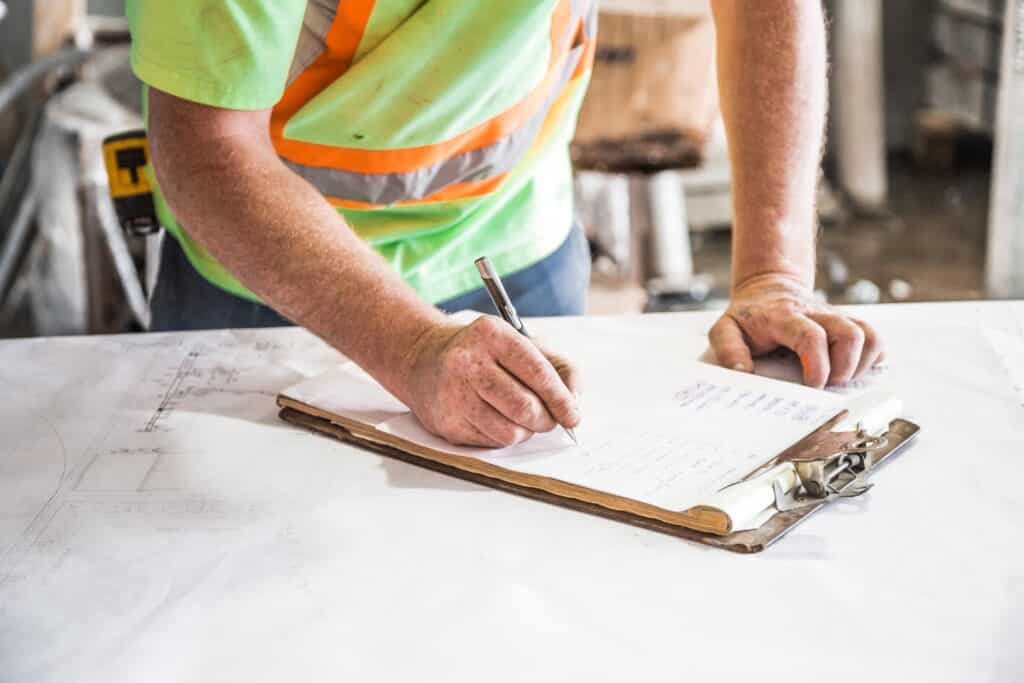
Many new business owners have yet to experience hiring a commercial contractor. As a result, many business owners do not know what to ask or even look for in a contractor. For many who have not been in thru this process before, may find it overwhelming at first. However, by reaching out to your potential contractor prior to you hiring him or her, may provide you with peace at mind.
Below is a list of questions that you should consider asking before hiring a commercial contractor for your next project, whether you are a small business owner or a property manager.
Questions You Should Ask Before Hiring a Contractor
1) Are You a Licensed Contractor?
This question can vary depending on the state you are in and the type of project you need done. However, it is important to hire a licensed contractor for your project to help ensure you are getting quality craftmanship, as well as, avoiding dangerous situations, lawsuits, fines, and more. Smaller projects that need specialty work may require a contractor to hold a specialty license for that trade. For example, a project that requires electrical work may require them to be a licensed electrician.
The most common license in the State of California for small to moderate construction projects is the “B” General Building Contractor License. Which certifies a contractor by the state to contractor and manage projects. If you want more information about licensed contractors or if you want to verify if a person is licensed, then click on this link the Contractors State License Board website https://www.cslb.ca.gov/.
2) Are You Insured And Bonded?
Insurance for a contractor is required by law comes in two different forms: Liability insurance and workers’ compensation. Contractor’s liability insurance covers damage done to the client’s property that has been inflicted by the contractor. Worker’s Compensation insurance provides employees of the contractor that are injured on the job for lost wages and medical services. It does not matter who is at fault, workers compensation will cover it.
Bonds are there to protect clients financially if the contractor fails to complete a job or obtain a permit for the job. Bonds also cover clients if there is damaged inflicted on the client’s property on behalf of the construction company. Before hiring the contractor, verify if they are bonded by ask for their bond number and certification. If you still have your suspicions about your potential contractor then reach out to their bond insurer for additional information. There are different requirements for bonds depending on the state and municipal regulations, so its always best to do your research prior to hiring a contractor.
Here is a link to California’s Contractors Licensing Board, where you can verify their license, in addition to their bond and insurance https://www.cslb.ca.gov/Consumer.aspx.
3) How Long Have You Been a Contractor?
It is important to know how much experience your potential general contractor has. Typically, the more experienced the contractor has been in business the more value they can provide their client’s. They already know what works and what does not. Their construction processed should be established and optimized overtime. Inexperienced contractors come at more risk and uncertainty. As a result, it may delay your project and potentially create additional issues or concerns.
4) What Similar Projects Have You Worked On?
The type of experience a contractor has can make or break a construction project. For example, getting a residential contractor for commercial construction project is not practical. In addition, you would not want a commercial contractor that only focuses on painting projects to oversee an electrical and plumbing project. Experience is key, it will provide you peace at mind for your construction projects. Ultimately, it is not only how much experience a contractor has, but what type of experience and is it relevant to your project? This may indicate how smooth your construction project will turn out.
5) Who Will Oversee My Project?
It is good to know who will be managing your construction project. Often, they will be the key person you communicate with. Typically, a contractor appoints a project manager to oversee all the construction work for a project. This is vital to ensure that quality control and safety standards are maintained throughout the project. Another important factor to consider is subcontractors. Will the contractor hire licensed, insured, and bonded subcontractors? What is their previous experience and how long have they been in business? Do not work with a contractor that you are not confident or comfortable with in delivering a quality project on time and on budget.
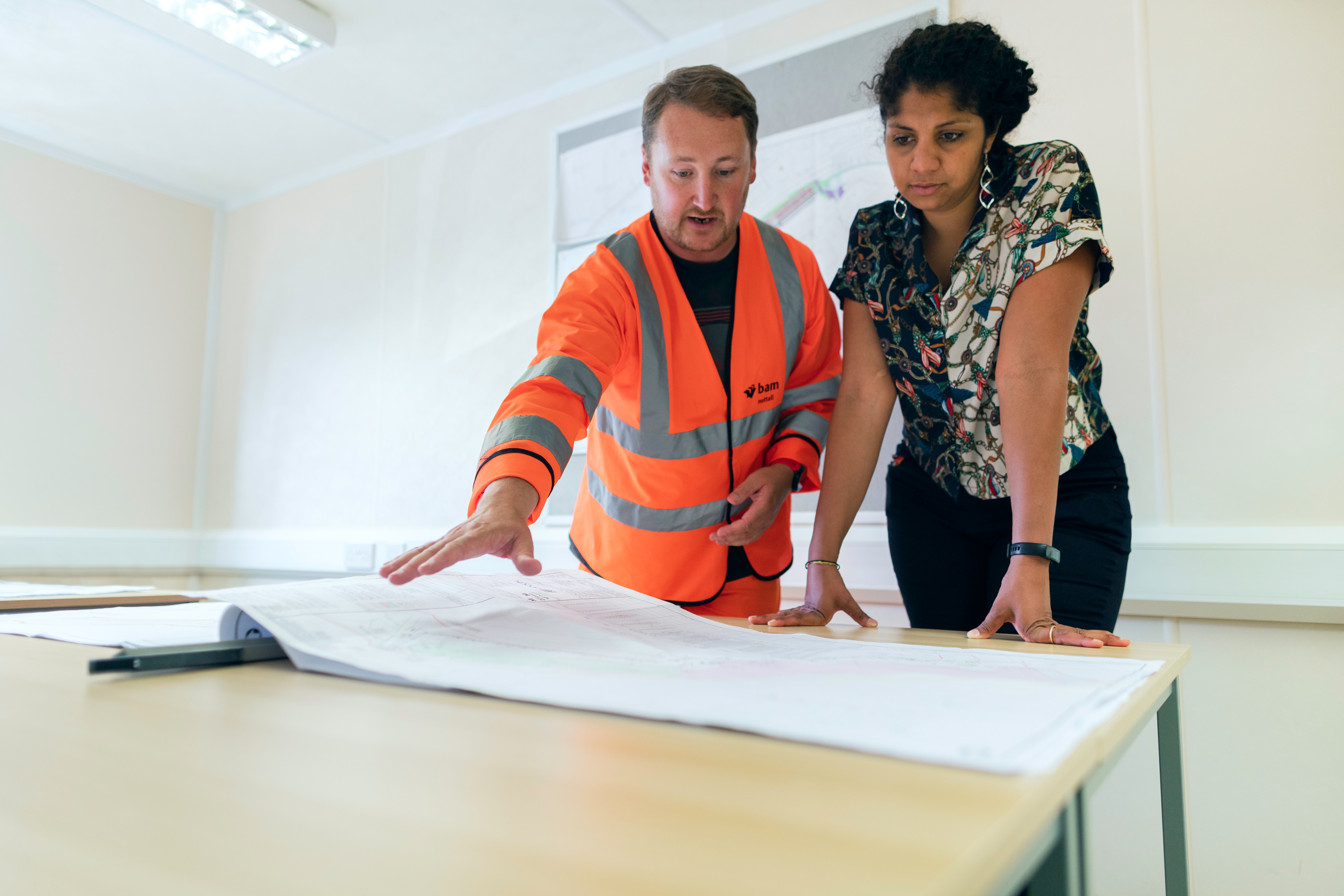
6) How Long Will This Project Take?
Many people new to construction process do not consider the impact of business operations. Coordinating the delivery date and deadlines for certain portions of the project with the contractor can go along way with your business success. Try to find a contractor that will work with you and help alleviate any strain or concerns for your business operations. However, this may be unavoidable.
7) Why Should We Choose You Over Your Competitors?
It is important to learn what makes your contractor unique and what they can bring to the table for construction project. Many contractors will say lowest prices or best quality craftmanship. However, that is not entirely true, because everyone in the industry says this. Unique contractors will build your trust and educate you on the construction project. Typically, experienced contractors will explain to you what your project needs and why, as well as how they will do the project. They should also have an active list of subcontractors for each trade.
8) When Could You Start This Project?
Depending on the project and the availability of the contractor will dictate how soon the project will start. The size and type of the construction project will determine how fast a contractor can plan and develop a bid for your project. For example, a simple painting of a building interior can be done fast, versus adding a new office to the building will require the planning/bidding of electrical, plumbing, paint, carpentry, and more.
The contractor will have to schedule the time for completion with each subcontractor, plan for material delivery, and get permits from the city (depending on project), in order to get started. Ultimately, your decision to hire this contactor, will depend on your preference on how soon or when you would like the contractor to start.
9) Who Will I Be in Contact with For This Project?
As stated earlier in this blog, often the point of contact for this project is the project manager. It is important for the project manager and the client to effectively communicate with each other throughout the construction process. Project Managers coordinate with the clients on what they need to do. For example, clients will provide access to the building or open certain parts of their facility for the construction workers. Clients can contact project managers for change orders, which are changes to the construction contract. For example, originally a client wanted to just add new interior lighting to their business, now wants to add paint to the interior as well.
10) Who Will Be Working On My Project?
It is important for the contractor to disclose who will be working on your project. Many construction companies do not have work uniforms and cannot be identified. For the safety of your business and employees, make sure the contractor or project manager communicates with you on how many people will be working on your project and when. Make sure you can identify the employees of the construction company and subcontractors to prevent any theft or distress from employees.
Partner With JMF Commercial Construction
JMF Commercial Construction is an experienced licensed contractor serving commercial and light industrial businesses, and HOA Property Management. We provide convenient and quality services to the Los Angeles & Orange County businesses.
To start your next commercial construction project today! Contact JMF Commercial Construction for an Estimate.
Email us at info@jmfcommercialconstruction.com or call us at (562)572-8354.
Most Popular:
Have A Question?
Relevant Blog Posts
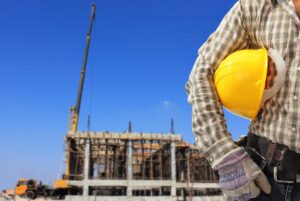
Why You Should Never Hire an Unlicensed Contractor
Hiring an unlicensed contractor can be quiet appealing for business owners, inexperienced in the construction process and looking for a quick easy and cheap construction

How To Find A Commercial Contractor
Are you looking for construction services for your commercial property? Then you need to find a commercial contractor. If you are new to finding commercial

Hiring The Right Commercial Contractor
Many new business owners have yet to experience hiring a commercial contractor. As a result, many business owners do not know what to ask or

What Services Do Commercial Contractors Provide?
Commercial contractors provide a wide variety of construction services depending on their construction expertise. Commercial construction services are for commercial businesses such as: retail, office,

Why Hiring A Commercial Contractor Is Important?
Whether you are looking for new construction, renovations, remodeling, or any other construction services for your commercial building, you will need to hire a commercial

Why You Should Never Hire an Unlicensed Contractor
Hiring an unlicensed contractor can be quiet appealing for business owners, inexperienced in the construction process and looking for a quick easy and cheap construction

Hiring The Right Commercial Contractor
Many new business owners have yet to experience hiring a commercial contractor. As a result, many business owners do not know what to ask or
Home » Top 10 Questions To Ask A Commercial Contractor
Top 10 Questions To Ask A Commercial Contractor
Many new business owners have yet to experience hiring a commercial contractor. As a result, many business owners do not know what to ask or even look for in a contractor. For many who have not been in thru this process before, may find it overwhelming at first. However, by reaching out to your potential contractor prior to you hiring him or her, may provide you with peace at mind.
Below is a list of questions that you should consider asking before hiring a commercial contractor for your next project, whether you are a small business owner or a property manager.
Questions You Should Ask Before Hiring a Contractor
Are You a Licensed Contractor?
This question can vary depending on the state you are in and the type of project you need done. However, it is important to hire a licensed contractor for your project to help ensure you are getting quality craftmanship, as well as, avoiding dangerous situations, lawsuits, fines, and more. Smaller projects that need specialty work may require a contractor to hold a specialty license for that trade. For example, a project that requires electrical work may require them to be a licensed electrician.
The most common license in the State of California for small to moderate construction projects is the “B” General Building Contractor License. Which certifies a contractor by the state to contractor and manage projects. If you want more information about licensed contractors or if you want to verify if a person is licensed, then click on this link the Contractors State License Board website https://www.cslb.ca.gov/.
Are You Insured & Bonded?
Insurance for a contractor is required by law comes in two different forms: Liability insurance and workers’ compensation. Contractor’s liability insurance covers damage done to the client’s property that has been inflicted by the contractor. Worker’s Compensation insurance provides employees of the contractor that are injured on the job for lost wages and medical services. It does not matter who is at fault, workers compensation will cover it.
Bonds are there to protect clients financially if the contractor fails to complete a job or obtain a permit for the job. Bonds also cover clients if there is damaged inflicted on the client’s property on behalf of the construction company. Before hiring the contractor, verify if they are bonded by ask for their bond number and certification. If you still have your suspicions about your potential contractor then reach out to their bond insurer for additional information. There are different requirements for bonds depending on the state and municipal regulations, so its always best to do your research prior to hiring a contractor.
Here is a link to California’s Contractors Licensing Board, where you can verify their license, in addition to their bond and insurance https://www.cslb.ca.gov/Consumer.aspx.
How Long Have You Been a Contractor?
It is important to know how much experience your potential general contractor has. Typically, the more experienced the contractor has been in business the more value they can provide their client’s. They already know what works and what does not. Their construction processed should be established and optimized overtime. Inexperienced contractors come at more risk and uncertainty. As a result, it may delay your project and potentially create additional issues or concerns.
What Similar Projects Have You Worked On?
The type of experience a contractor has can make or break a construction project. For example, getting a residential contractor for commercial construction project is not practical. In addition, you would not want a commercial contractor that only focuses on painting projects to oversee an electrical and plumbing project. Experience is key, it will provide you peace at mind for your construction projects. Ultimately, it is not only how much experience a contractor has, but what type of experience and is it relevant to your project? This may indicate how smooth your construction project will turn out.
Who Will Oversee My Project?
It is good to know who will be managing your construction project. Often, they will be the key person you communicate with. Typically, a contractor appoints a project manager to oversee all the construction work for a project. This is vital to ensure that quality control and safety standards are maintained throughout the project. Another important factor to consider is subcontractors. Will the contractor hire licensed, insured, and bonded subcontractors? What is their previous experience and how long have they been in business? Do not work with a contractor that you are not confident or comfortable with in delivering a quality project on time and on budget.
How Long Will This Project Take?
Many people new to construction process do not consider the impact of business operations. Coordinating the delivery date and deadlines for certain portions of the project with the contractor can go along way with your business success. Try to find a contractor that will work with you and help alleviate any strain or concerns for your business operations. However, this may be unavoidable.
Why Should We Choose You Over Your Competitors?
It is important to learn what makes your contractor unique and what they can bring to the table for construction project. Many contractors will say lowest prices or best quality craftmanship. However, that is not entirely true, because everyone in the industry says this. Unique contractors will build your trust and educate you on the construction project. Typically, experienced contractors will explain to you what your project needs and why, as well as how they will do the project. They should also have an active list of subcontractors for each trade.
When Could You Start This Project?
Depending on the project and the availability of the contractor will dictate how soon the project will start. The size and type of the construction project will determine how fast a contractor can plan and develop a bid for your project. For example, a simple painting of a building interior can be done fast, versus adding a new office to the building will require the planning/bidding of electrical, plumbing, paint, carpentry, and more.
The contractor will have to schedule the time for completion with each subcontractor, plan for material delivery, and get permits from the city (depending on project), in order to get started. Ultimately, your decision to hire this contactor, will depend on your preference on how soon or when you would like the contractor to start.
Who Will I Be in Contact with For This Project?
As stated earlier in this blog, often the point of contact for this project is the project manager. It is important for the project manager and the client to effectively communicate with each other throughout the construction process. Project Managers coordinate with the clients on what they need to do. For example, clients will provide access to the building or open certain parts of their facility for the construction workers. Clients can contact project managers for change orders, which are changes to the construction contract. For example, originally a client wanted to just add new interior lighting to their business, now wants to add paint to the interior as well.
Who Will Be Working On My Project?
It is important for the contractor to disclose who will be working on your project. Many construction companies do not have work uniforms and cannot be identified. For the safety of your business and employees, make sure the contractor or project manager communicates with you on how many people will be working on your project and when. Make sure you can identify the employees of the construction company and subcontractors to prevent any theft or distress from employees.
To start your next commercial construction project today! Contact JMF Commercial Construction for an Estimate.
Email us at info@jmfcommercialconstruction.com or call us at (562)572-8354.
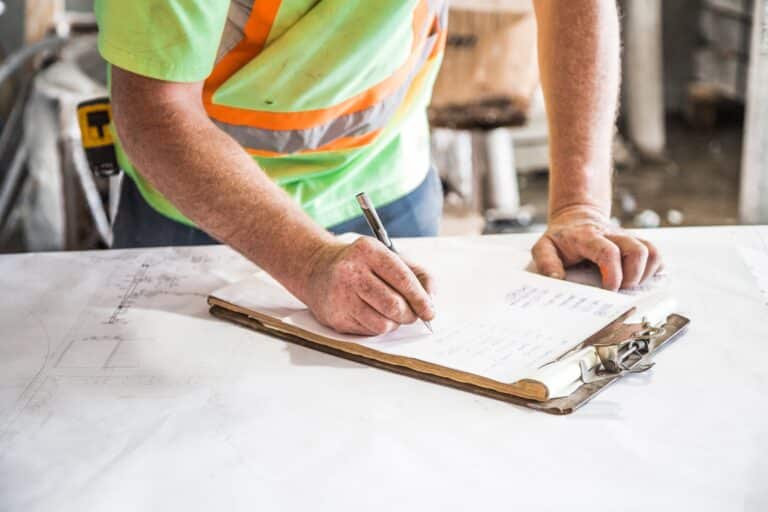
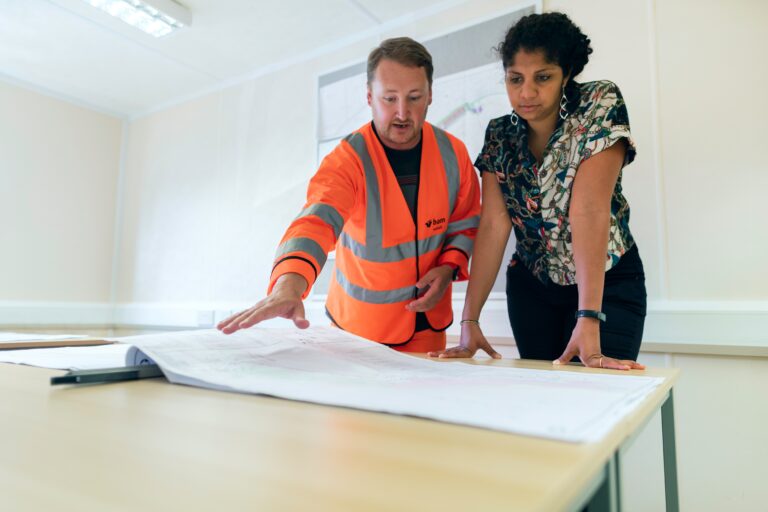
Relevant Blog Posts
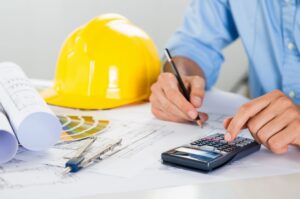
Why You Should Hire A Contractor Directly & Not Through A Third Party
Many people have trouble looking for contractors to help them with their construction needs. Especially if they are new to the contractor hiring process. Often,

What Services Do Commercial Contractors Provide?
Commercial contractors provide a wide variety of construction services depending on their construction expertise. Commercial construction services are for commercial businesses such as: retail, office,

Hiring The Right Commercial Contractor
Many new business owners have yet to experience hiring a commercial contractor. As a result, many business owners do not know what to ask or
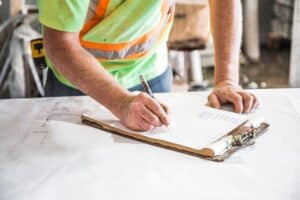
Top 10 Questions To Ask A Commercial Contractor
Many new business owners have yet to experience hiring a commercial contractor. As a result, many business owners do not know what to ask or

Why You Should Never Hire an Unlicensed Contractor
Hiring an unlicensed contractor can be quiet appealing for business owners, inexperienced in the construction process and looking for a quick easy and cheap construction

Why Hiring A Commercial Contractor Is Important?
Whether you are looking for new construction, renovations, remodeling, or any other construction services for your commercial building, you will need to hire a commercial

Hiring The Right Commercial Contractor
Many new business owners have yet to experience hiring a commercial contractor. As a result, many business owners do not know what to ask or



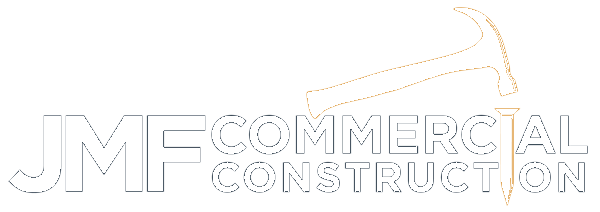
1 thought on “Top 10 Questions To Ask A Commercial Contractor”
Comments are closed.